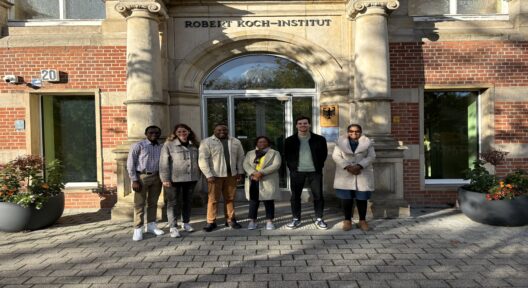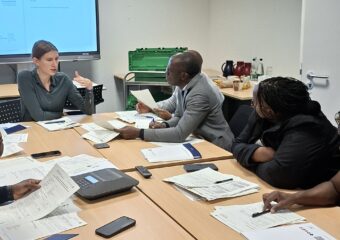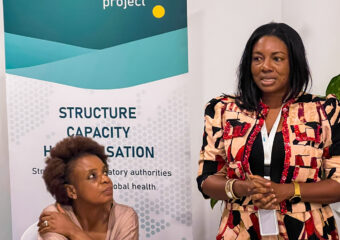TwiNit 2.0 Project Organises a Publication Workshop in Berlin
To support partners in Namibia in publishing their routine data, the Robert Koch Institute organised a workshop in fall of 2024. The theme of the workshop was forming and establishing a publication series.

The workshop, lasting from 7 to 11 October 2024, took place in Berlin and was also transmitted online. The event was organised by the Namibia-RKI Twinning Project (TwiNit 2) and supported by nearly 20 speakers from the Robert Koch Institute (RKI) and the European Centre for Disease Prevention and Control (ECDC).
The topic of the workshop was mapping different aspects of a publication series, such as a regular bulletin or a statistical yearbook. Editors from three scientific journals reported on their experiences and the publication process. They came from the Epidemiological Bulletin, the Journal of Health Monitoring and Eurosurveillance. They supported the participants working in groups on a concept for their publications.
Another topic of the workshop was scientific publishing, including literature searches, literature data management and the selection of the right journals for publication.
The third thematic block was elaborating on steps involved in collecting and analysing data. This included presentations on German surveillance systems for infectious diseases and non-communicable diseases. It also provided insights in software products for data analysis and the role of artificial intelligence in the preparation of publications.
A total of around 25 people took part in the workshop. We were able to invite three employees of the Ministry of Health and Social Services (MoHSS) who followed the call from Namibia to Berlin. This enabled further discussions on the workshop topic but also stretched beyond to other collaboration projects with the RKI. In addition, about 20 people from the Jordan Center for Disease Control (CDC) and various institutions in Namibia attended the workshop online. Among them were the MoHSS, Namibia Institute of Pathology (NIP) and the University of Namibia (UNAM). Another three employees from the RKI participated on site.
The workshop was evaluated favourably. Initial drafts for the creation of a roadmap for the ongoing publication of routine data in Namibia and Jordan have been produced. The further development of which TwiNit 2.0 will support wherever possible.
The workshop was organised as part of the TwiNit 2.0 project which is part of the Global Health Protection Programme (GHPP). The aim of the project is to support the Namibian MoHSS in establishing the Namibia Institute of Public Health (NIPH) and the associated technical tasks.
We would like to take this opportunity to thank all the speakers.


